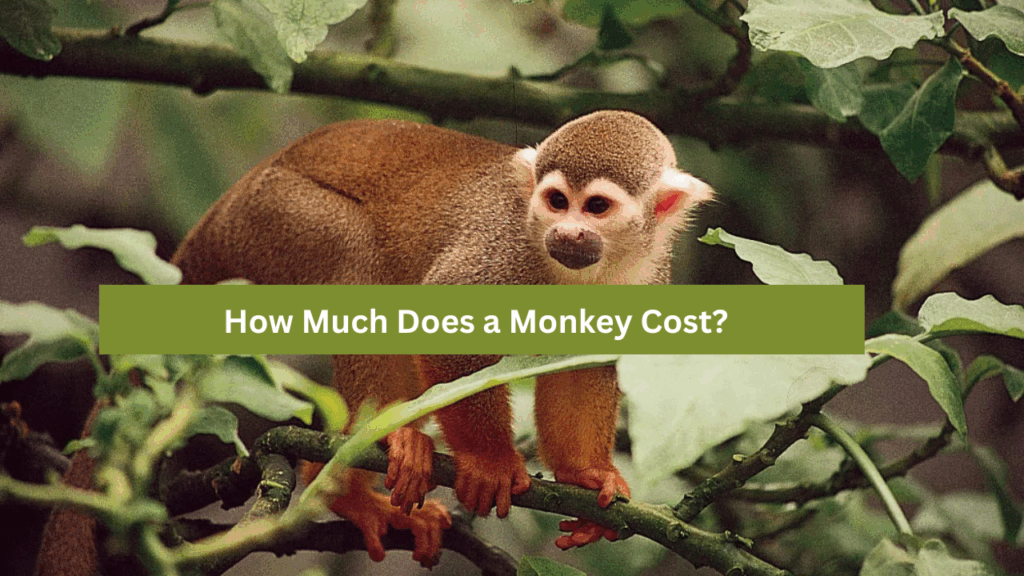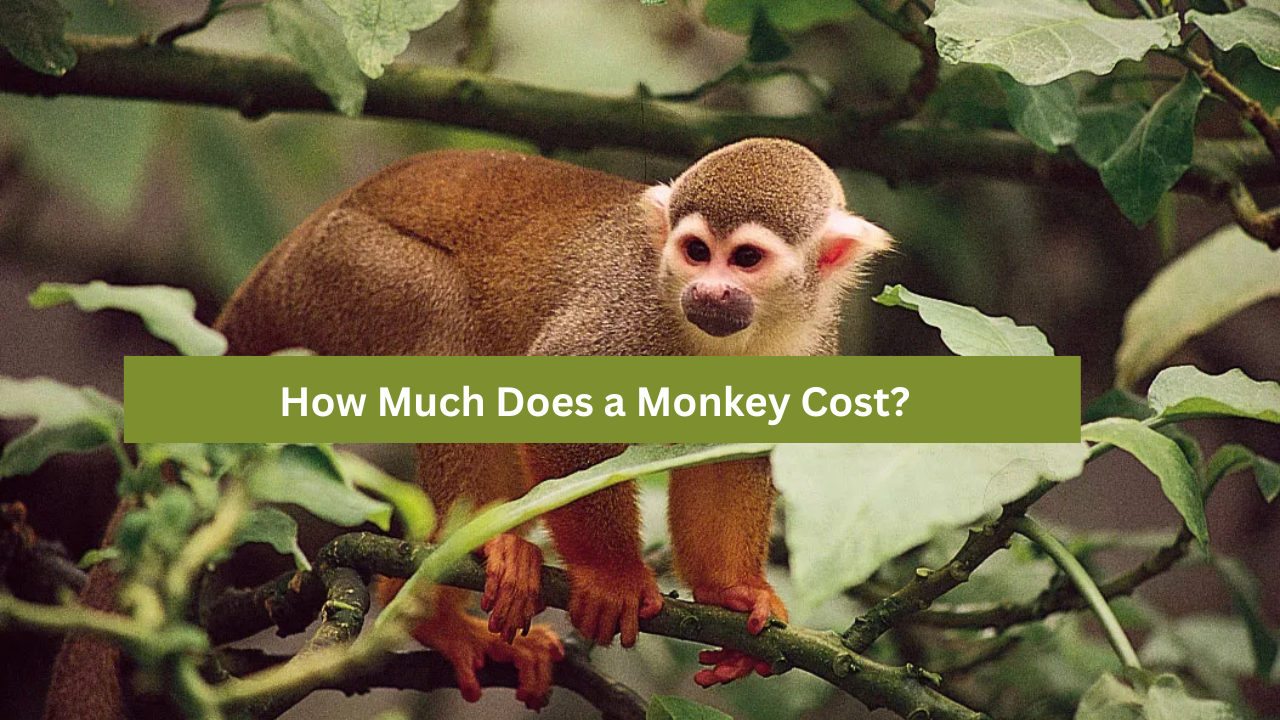
How Much Does a Pet Monkey Cost? A Comprehensive Guide
The allure of owning an exotic pet, like a monkey, is undeniable. Their playful nature and human-like antics can be incredibly appealing. However, before succumbing to the charm, it’s crucial to understand the significant financial and ethical implications involved. One of the first and most pressing questions is: How much does a pet monkey cost? This guide provides a comprehensive overview of the expenses associated with owning a monkey, going beyond the initial purchase price to include long-term care, legal considerations, and ethical responsibilities.
Initial Costs: Buying a Monkey
The initial cost of acquiring a monkey can vary widely depending on several factors:
- Species: Different species command different prices. Smaller monkeys, like marmosets or tamarins, generally cost less than larger species like capuchins or macaques.
- Age: Infant monkeys are often more expensive due to the intensive care they require.
- Breeder: Reputable breeders who prioritize the health and well-being of their animals will typically charge more.
- Location: Prices can vary depending on the availability of monkeys in your area and local regulations.
Here’s a general price range for some common pet monkey species:
- Marmosets: $4,000 – $8,000
- Tamarins: $5,000 – $9,000
- Capuchins: $7,000 – $15,000
- Squirrel Monkeys: $6,000 – $12,000
These figures represent a starting point. Finding a reputable breeder is paramount. Avoid purchasing monkeys from unverified sources, as they may be illegally obtained or poorly cared for. Always request documentation and health records before making a purchase. Owning a pet monkey is a big commitment, so you need to ensure it’s done ethically.
Beyond the Purchase Price: Ongoing Expenses
The initial cost of a monkey is just the tip of the iceberg. The ongoing expenses associated with their care can be substantial and often underestimated. These costs include:
Diet
Monkeys have specific dietary needs that must be met to ensure their health and well-being. Their diet should consist of a variety of fresh fruits, vegetables, insects, and specialized monkey chow. The monthly cost of food can range from $200 to $500, depending on the size and species of the monkey. Remember, a balanced diet is essential for a pet monkey‘s health.
Enclosure
Monkeys require a spacious and secure enclosure that allows them to climb, play, and express their natural behaviors. The enclosure should be made of durable materials and provide adequate protection from the elements. Building or purchasing a suitable enclosure can cost anywhere from $1,000 to $5,000 or more, depending on the size and complexity. [See also: Building a Monkey Enclosure: A Step-by-Step Guide] Regular maintenance and cleaning are also necessary to prevent the spread of disease.
Veterinary Care
Monkeys require regular veterinary checkups and vaccinations to maintain their health. Finding a veterinarian experienced in treating primates can be challenging and expensive. Veterinary bills can easily exceed $1,000 per year, especially if the monkey develops a health problem. Emergency veterinary care can be even more costly. Consider pet insurance designed for exotic animals, but understand the limitations and coverage. The cost to keep a pet monkey healthy is something to consider.
Enrichment
Monkeys are intelligent and social animals that require mental and physical stimulation to prevent boredom and behavioral problems. Providing enrichment items such as toys, puzzles, and climbing structures is essential. The cost of enrichment items can vary but should be factored into your budget. Plan to spend at least $50 to $100 per month on enrichment. A bored pet monkey is an unhappy one.
Insurance
Standard pet insurance policies rarely cover exotic animals like monkeys. Specialized exotic pet insurance can be very expensive, but it may be worth considering to protect against unexpected veterinary costs or liability issues.
Legal and Regulatory Compliance
Owning a monkey is illegal in many states and localities. Even in areas where it is legal, there may be strict regulations regarding permits, vaccinations, and housing requirements. Failure to comply with these regulations can result in fines, confiscation of the monkey, or even criminal charges. Before acquiring a monkey, thoroughly research the laws in your area and obtain all necessary permits and licenses. The legality of owning a pet monkey is a serious matter.
Ethical Considerations: The True Cost of Owning a Monkey
Beyond the financial costs, there are significant ethical considerations to contemplate before bringing a monkey into your home. Monkeys are complex and intelligent animals with specific social and behavioral needs that are difficult to meet in a domestic environment.
Social Needs
Monkeys are highly social animals that thrive in groups. Keeping a monkey alone can lead to loneliness, depression, and behavioral problems. Providing a monkey with adequate social interaction can be challenging, especially if you work full-time or have other commitments.
Behavioral Issues
Monkeys can exhibit a variety of challenging behaviors, including biting, scratching, throwing feces, and destructive behavior. These behaviors can be difficult to manage, especially for inexperienced owners. Proper training and socialization are essential, but even with the best efforts, some monkeys may still exhibit problematic behaviors. The behavior of a pet monkey can be unpredictable.
Zoonotic Diseases
Monkeys can carry diseases that can be transmitted to humans, such as herpes B virus, simian immunodeficiency virus (SIV), and tuberculosis. These diseases can be serious and even fatal. Proper hygiene and veterinary care are essential to minimize the risk of zoonotic disease transmission. Always consult with your doctor about potential health risks associated with owning a monkey.
Commitment
Monkeys can live for 20 to 40 years or more. Owning a monkey is a long-term commitment that requires significant time, effort, and resources. Before acquiring a monkey, carefully consider whether you are prepared to provide for its needs for the rest of its life. What happens to your pet monkey if you can no longer care for it?
Alternatives to Owning a Monkey
If you are drawn to monkeys but are not prepared for the responsibilities of ownership, there are several alternatives to consider:
- Visit a zoo or primate sanctuary: Observing monkeys in a naturalistic setting can be a rewarding experience.
- Support primate conservation organizations: Donating to organizations that protect monkeys and their habitats can make a difference.
- Volunteer at a primate sanctuary: Volunteering can provide hands-on experience working with monkeys and supporting their care.
Conclusion: Is Owning a Monkey Right for You?
How much does a pet monkey cost? The answer is more than just a dollar amount. Owning a monkey is a complex and challenging endeavor that requires significant financial resources, time, and commitment. Before acquiring a monkey, carefully consider the ethical implications, legal requirements, and long-term responsibilities involved. For most people, owning a monkey is not a suitable choice. Weigh the costs, both financial and ethical, before making a decision that could impact not only your life but also the well-being of a complex and intelligent animal. The decision to own a pet monkey should not be taken lightly. Understanding the true cost of a pet monkey is crucial. Remember to consider all factors before getting a pet monkey. A pet monkey needs a lot of care. The price of a pet monkey is just the beginning. Keeping a pet monkey is a long-term commitment. Think carefully about the responsibility of owning a pet monkey.

